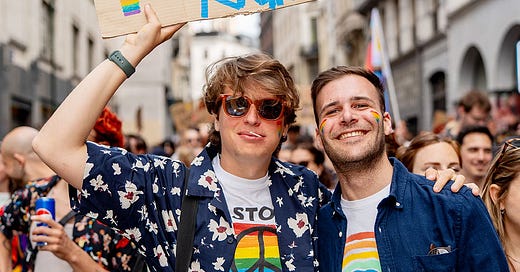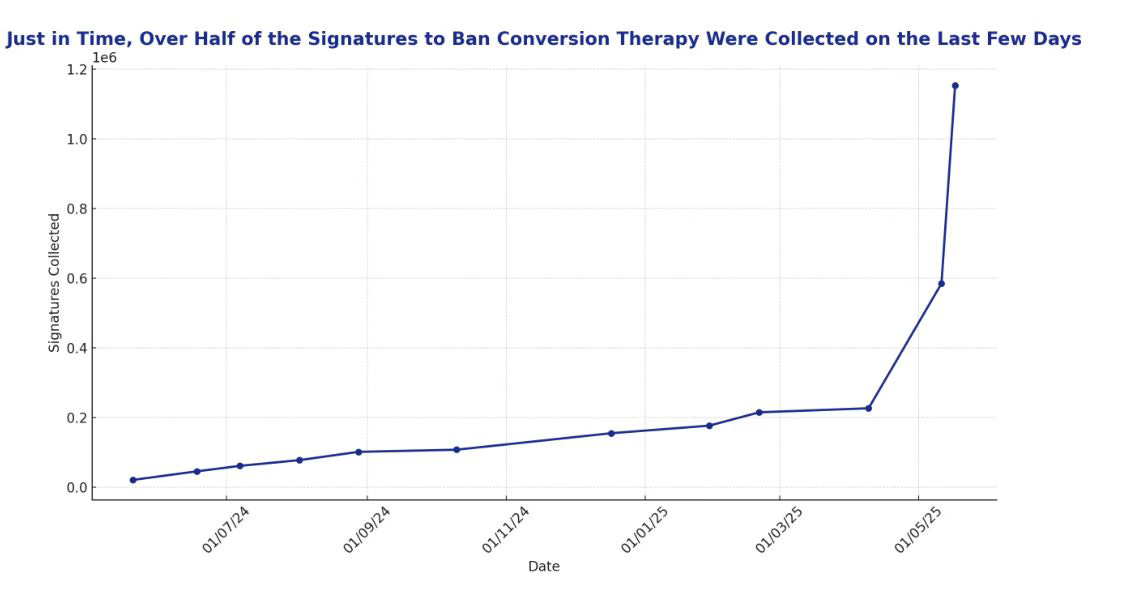What Future for an EU-wide Ban of Conversion Practices?
Hey! 🌈 I am back (again!) with the second special issue to mark Pride Month!
For this special issue, please join me in welcoming a special guest, Pietro Valetto. Pietro is a PhD Researcher and Content Creator who talks about personal finance and economic inequality on his own Substack: Pietronomics.
The European Citizens’ Initiative to Ban Conversion Practices
Any EU citizen can launch a European Citizens’ Initiative (ECI) to urge the European Commission to act on a given issue.
While this instrument of direct democracy comes with strict requirements - including collecting at least 1 million signatures, with a minimum threshold to be reached in at lest 7 Member States - it represents one of the most powerful ways for EU citizens to push for change.
On 24 January 2024, a group of EU citizens called ACT (Against Conversion Therapies) registered an ECI to propose an EU-wide ban of Conversion Practices.
These are defined as interventions aimed at changing, repressing or suppressing the sexual orientation, gender identity and/or gender expression of LGBTIQA+ individuals (see the state of affairs at EU level here).
In a remarkable, last-minute mobilization effort, this ECI reached the required 1 million signatures on 17 May 2025 - a symbolic date that also marks IDAHOBIT.
Once the signatures will be verified, the European Commission will meet with the organizers and decide whether to propose legislation, take other actions, or — as is still possible — choose not to act.
Change Happens Slowly, Then All At Once
That is the lesson from the campaign to Ban Conversion Practices in the EU.
For months, progress toward the 1 million signature target was slow, with little sign of momentum. Then, in the final days, a massive mobilization of activist groups, celebrities, and political parties embraced the initiative and pushed it over the threshold on the very last day.
The takeaway is that you need a pop moment to achieve big things, but first you have to lay the groundwork.
The bureaucratic hurdles of the European Citizens' Initiative are considerable. You need expert lawyers to review your proposal, a system to collect signatures in at least seven Member States, and a strong enough message to make your voice heard when the moment comes.
What’s Next?
The European Commission retains discretion to decide on the future course of this initiative.
According to the organizers, the Commission should start a legislative initiative to include Conversion Practices within the list of EU crimes. This would then open the door for a Directive to define conversion practices and set penalties.
As an EU lawyer, I support this course of action—but I also see its limitations. To include conversion practices within EU crimes, the Council needs to decide by unanimity.
It goes without saying that in the current political climate, achieving unanimity may be the greatest obstacle (I talked about this here).
For this reason, I urge the Commission to explore alternative legal avenues in parallel. An example could be the extensive interpretation of the notion of ‘sexual exploitation of children’ in Directive 2011/93/EU.
Looking ahead, the Commission is also preparing to publish its LGBTIQ Equality Strategy for 2026–2030. While the full content is not yet public, the Commission has already confirmed that banning Conversion Practices will be a priority for this legislative term.
I welcome that focus — and I made this clear in my contribution to the Commission’s open consultation on the Strategy.
That said, many of you will know from my previous work (also with Pietro and EU&U) that I remain deeply critical of this conservative Commission. My trust is limited. But I still hope — and demand — that these degrading and violent practices be banned across the entire European Union.
Time will tell. In the meantime, let’s keep claiming space, taking the streets, and making ourselves heard.
Hugs,
Alessandro and Pietro







